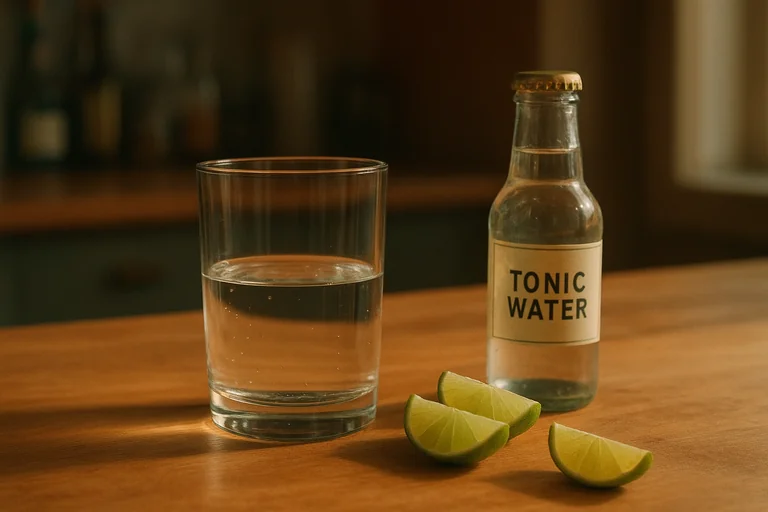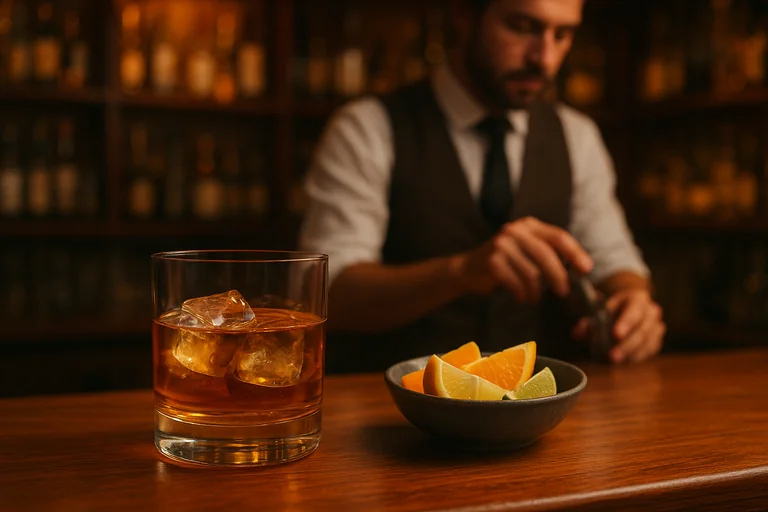A 2 minute assessment to get a personalized mental health or alcohol recovery plan.
Intermittent sobriety is taking planned, recurring breaks from alcohol - a flexible approach that doesn't require complete abstinence.
What You'll Discover:
- What intermittent sobriety is and how it differs from being sober curious.
- Why this approach is gaining popularity across all age groups.
- The science behind temporary abstinence challenges like Dry January.
- Health benefits of taking breaks from alcohol.
- How to start practicing intermittent sobriety.
- When more structured treatment may be necessary.
Want to cut back on drinking but complete sobriety feels too daunting? Intermittent sobriety offers a middle path.
Intermittent sobriety is the practice of taking planned, recurring breaks from alcohol. This could mean abstaining for a few days a week, a week a month, or a longer period like "Dry January" or "Sober October." The key is making a conscious decision to step back from alcohol, reset your habits, and experience the benefits.
What is Intermittent Sobriety?
At its core, intermittent sobriety is taking planned, recurring breaks from alcohol. Unlike complete sobriety, which means abstaining entirely, intermittent sobriety is more flexible - you alternate between periods of drinking and non-drinking.
It's different from being "sober curious." Being sober curious is about questioning your relationship with alcohol and being more mindful. Intermittent sobriety can result from being sober curious, but it's more structured with defined periods of abstinence. As Real Simple puts it, intermittent sobriety is "practicing temporary, recurring periods of abstinence from alcohol."
This approach isn't about punishment or deprivation. It's about empowerment - proving to yourself that you don't need alcohol to have fun, relax, or cope with stress.
Why This Approach is Gaining Popularity
Intermittent sobriety is more than a trend - it's a cultural shift. According to recent data, 61% of Gen Z are willing to cut back on drinking or not drink at all, and 41% of Americans of all ages are trying to reduce their alcohol consumption.
The numbers tell the story. 93% of people who buy non-alcoholic drinks also buy alcoholic versions. As Dr. Sanjay Gupta noted on CNN, "People aren't quite willing to go cold turkey, but they're increasingly heading that way."
The reasons vary. Some want to improve their physical and mental health. The negative effects of alcohol - poor sleep, increased anxiety - are becoming more widely understood. Others want to save money or avoid negative social consequences of excessive drinking. And some simply want to be more present and engaged in their lives.
Understanding the difference between alcohol abuse vs alcohol addiction is a critical first step in this journey.
The Science Behind Temporary Abstinence Challenges
There's solid evidence supporting the benefits of taking breaks from alcohol. Researchers have been studying "temporary abstinence challenges" (TACs), and the results are promising.
A 2023 review in Drug and Alcohol Review looked at several studies on TACs like Dry January. The researchers found that participation is associated with reduced alcohol consumption even after the challenge ends. Taking a break from alcohol can have a lasting impact on your drinking habits.
One key finding: even people who don't stay completely abstinent for the entire challenge still experience benefits. This takes the pressure off perfection. The study notes that "post-TAC reductions in alcohol consumption [are] still apparent among participants who do not remain fully abstinent throughout the challenge."
The benefits go beyond just drinking less. Studies found participation is associated with:
Increased Self-Efficacy - Your belief in your ability to refuse a drink. After a period of abstinence, people feel more confident saying no to alcohol in social situations.
Improved Well-Being - Participants report improvements in their overall well-being, including mental and physical health.
The scale is significant. In 2021, 130,000 people in the UK officially registered for "Dry January," but an estimated 6.5 million participated informally. There's huge appetite for a more mindful approach to alcohol consumption.
Health Benefits of Taking Breaks From Alcohol
Taking a break from alcohol, even for a short period, can significantly impact your physical and mental health.
Physical Benefits:
Improved Liver Function - Even a short break gives your liver a chance to repair and regenerate. Chronic alcohol consumption can lead to fatty liver disease, inflammation, and cirrhosis. Regular breaks reduce the strain on your liver.
Better Sleep - While a nightcap might make you feel sleepy, alcohol disrupts your sleep cycle. When you abstain, you sleep more deeply and wake up more refreshed.
Weight Management - Alcoholic beverages are packed with empty calories. Cutting back is a simple way to reduce calorie intake and support weight management.
Enhanced Immune System - Excessive alcohol consumption suppresses your immune system. A break helps your immune system function better.
Mental Health Benefits:
Reduced Anxiety and Depression - Many use alcohol to self-medicate, but it's a temporary fix that makes things worse long-term. Alcohol is a depressant that exacerbates these conditions. Taking a break helps you find healthier coping methods.
Increased Mental Clarity - Alcohol clouds your thinking and impairs judgment. When you abstain, you'll experience noticeable improvement in mental clarity, focus, and concentration.
Stronger Relationships - Alcohol can be a barrier to authentic connection. Social activities without alcohol often lead to deeper, more meaningful conversations.
Financial Savings - Drinking is expensive. Cutting back saves money you can put toward other things you enjoy.
Taking regular breaks means investing in your health and future. This is a core part of understanding alcohol use disorder and finding a path to recovery.
How to Practice Intermittent Sobriety
Ready to try intermittent sobriety? Here are steps to get started:
1. Define Your "Why" - Think about why you want to take a break from alcohol. What are your goals? What do you hope to achieve? A clear "why" helps you stay motivated.
2. Start Small - You don't have to commit to a month-long break right away. Start with a few days or a week and see how you feel. You can always extend it.
3. Plan Ahead - If you have social events coming up, plan how you'll handle them. Bring your own non-alcoholic drinks, or practice saying "no, thanks" comfortably.
4. Find Alternatives - Explore non-alcoholic beverages. There are more options than ever, from craft mocktails to non-alcoholic beers and wines.
5. Track Your Progress - Keep a journal to track progress and notice how you're feeling. This helps you stay motivated and see how far you've come.
When Intermittent Sobriety Isn't Enough
Intermittent sobriety is a powerful tool for many, but it's not a solution for everyone. If you're struggling to control your drinking despite your best efforts, you may need more support.
Be honest with yourself. If you experience strong cravings, withdrawal symptoms, or find that drinking negatively impacts your health, relationships, or work, seek professional help. These can be signs of a more serious issue requiring structured treatment.
Asking for help is a sign of strength. Many effective treatments are available, from therapy and support groups to medication-assisted treatment. For some, naltrexone can be a powerful tool for regaining control.
Ready to explore your options? Take the Alcohol Use Assessment to understand your drinking patterns and discover what approaches might work for you.
References
[1] Real Simple. "What Is Intermittent Sobriety, and Why Is It Trending?" https://www.realsimple.com/what-is-intermittent-sobriety-8719784
[2] Drug and Alcohol Review. (2023). "Temporary abstinence challenges: What do we need to know?" https://pmc.ncbi.nlm.nih.gov/articles/PMC10947026/




